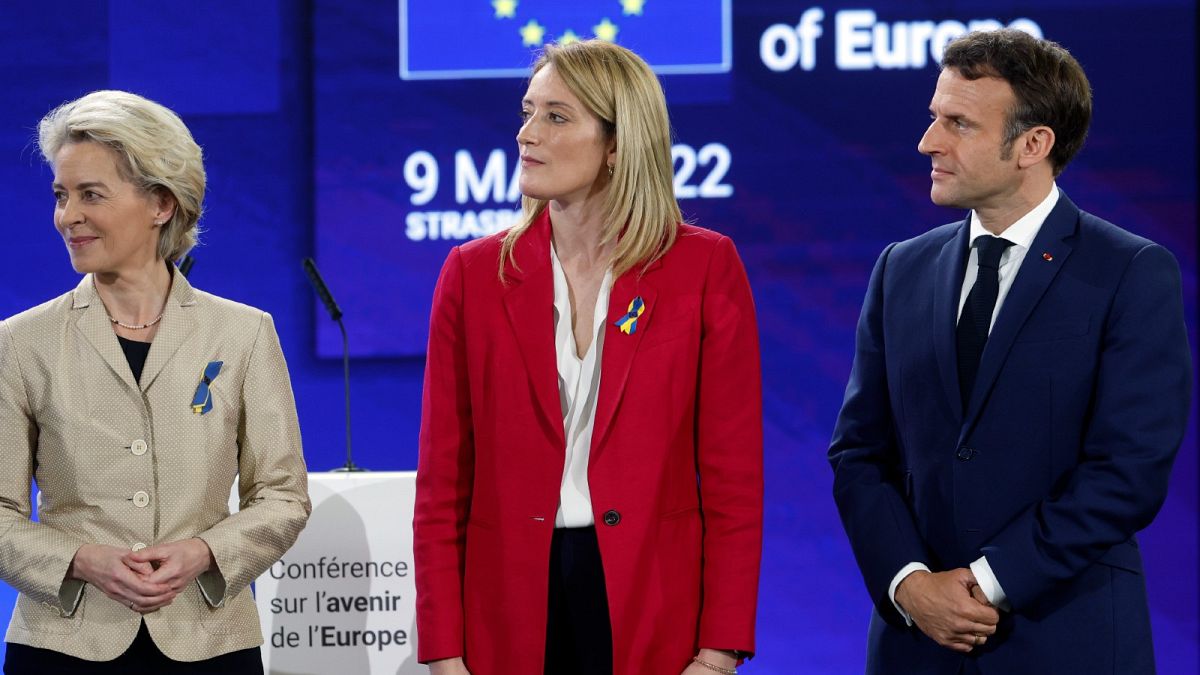Supporters of treaty changes say that it will make the EU quicker to respond to crises like COVID-19 and the war in Ukraine but opponents say it will take too much political energy that's currently needed elsewhere.
Over the past two weeks, several prominent European Union leaders have publicly come out in favour of amending the EU treaties, sparking swift opposition.
Among those who have expressed support for updating the treaties are French President Emmanuel Macron, Italian Prime Minister Mario Draghi, European Commission President Ursula von der Leyen and EU parliament President Roberta Metsola.
Supporters of treaty changes say this will make the 27-country bloc more transparent and accountable but also, and perhaps more crucially, more nimble when responding to crises such as the COVID-19 pandemic and Russia's war in Ukraine.
In their crosshairs is unanimity voting at the EU Council level which remains necessary for several key policy areas including foreign affairs, enlargement, finances and certain provisions in the field of justice and home affairs.
This allows member states to veto EU action in these fields, which supporters say slows down the bloc's reactiveness. For instance, Hungary and Poland threatened to veto the bloc's multi-year budget in late 2020 over plans to create a rule of law mechanism. The budget was eventually passed after EU leaders agreed to water down the mechanism linking adherence to the rule of law to EU funds.
Treaty changes would also enable the parliament to initiate legislation that is currently the sole domain of the European Commission.
At least 13 member states have opposed changes to the treaties this week, arguing it is "premature" and that it would "entail a serious risk of drawing political energy away from the important tasks of dinging solutions" to the questions raised a part of the recently-concluded Conference on the Future of Europe.
Treaty changes are laborious affairs that usually entail years of negotiations followed by unanimous approval from all member states. Some states require their national parliaments to back changes while others must get their electorate's approval.
Work on the Treaty of Lisbon, for instance, started in 2001 with the final text adopted in late 2007. It came into force in 2009.
